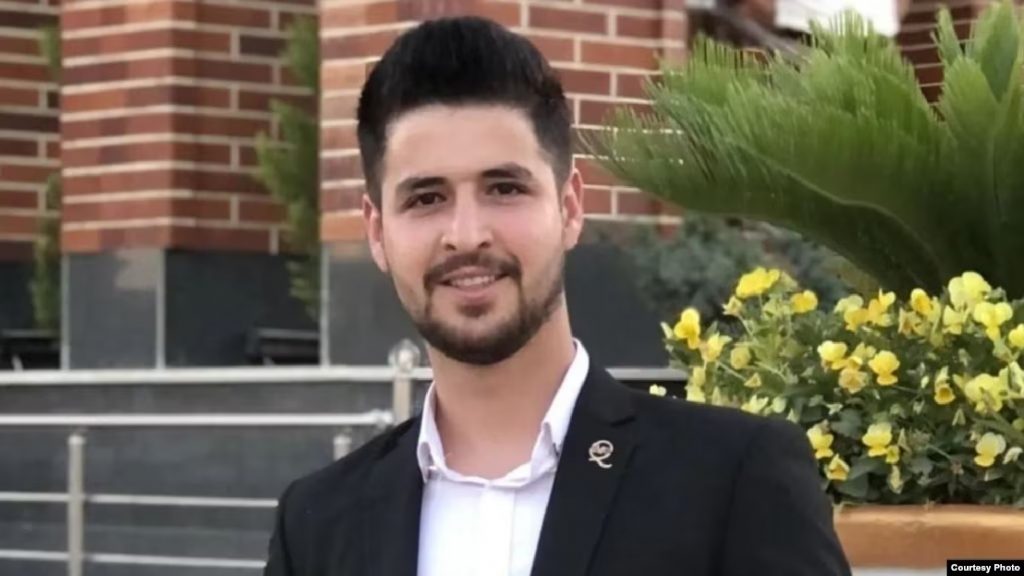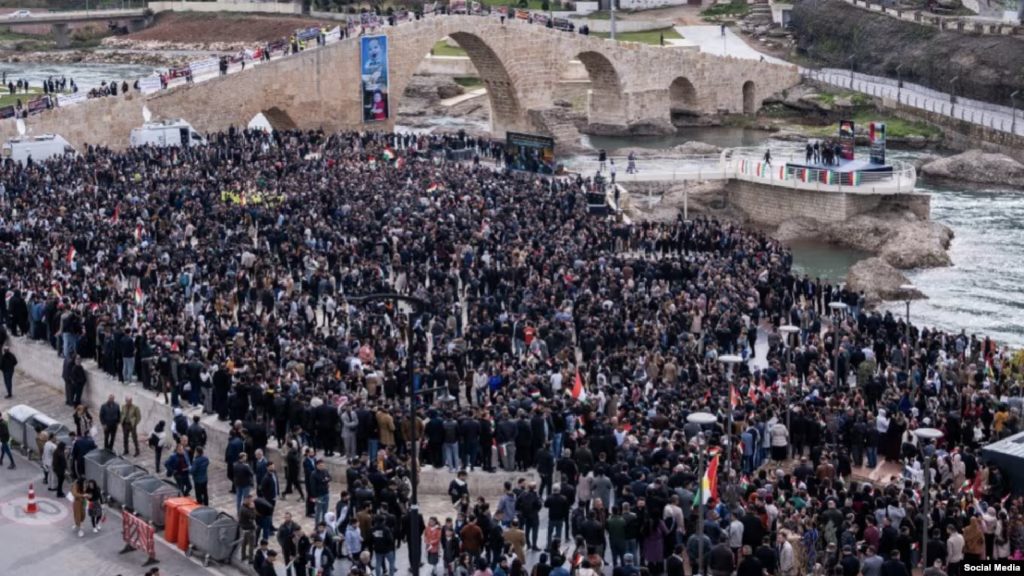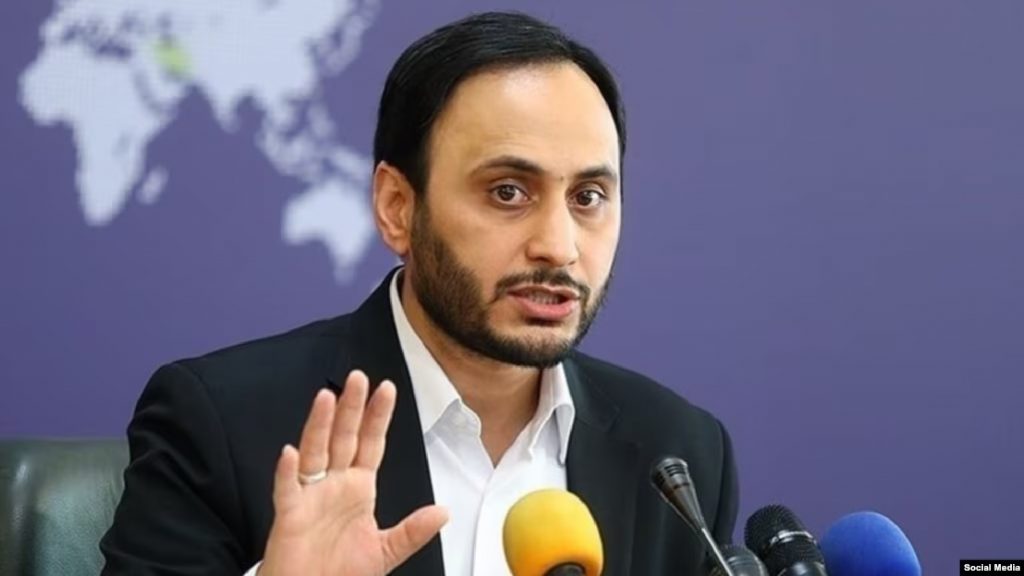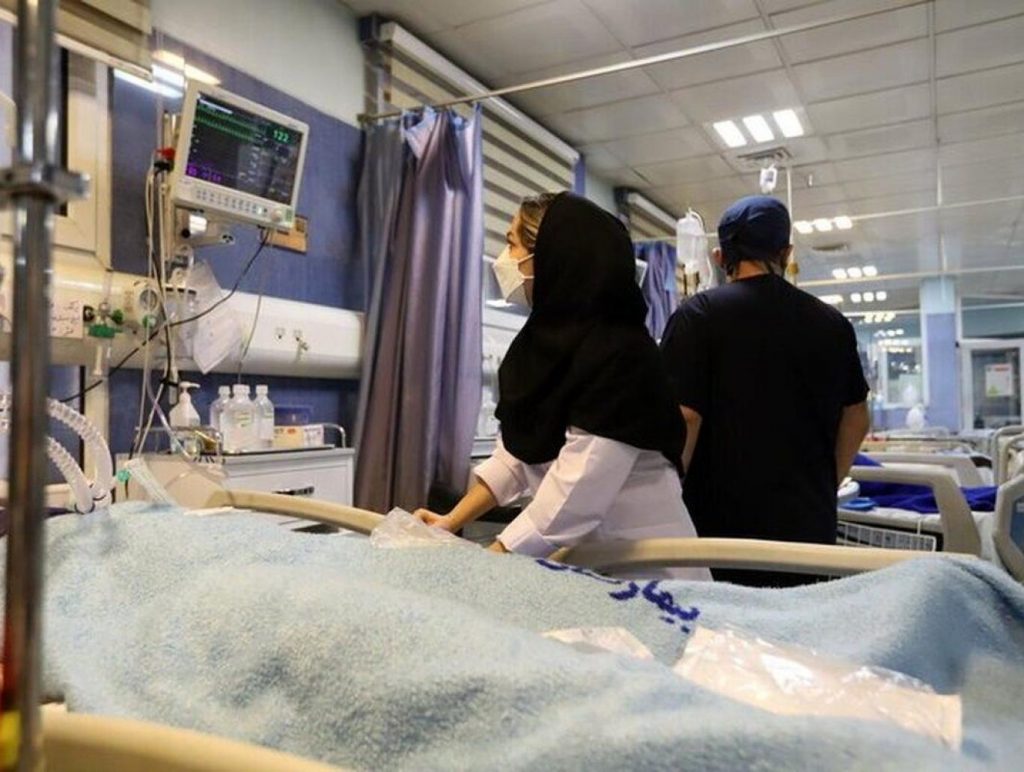
Iran’s Missile Attacks and the Problem of Balance
The editorial of Jahan Sanat argues that Iran’s measures, including the recent missile attacks against Iraqi Kurdistan and Pakistan, are not sufficient to stop the measures taken against the country.
On Tuesday last week, the Iranian people started their day with reports of IRGC missile attacks against multiple locations in Syria and Iraqi Kurdistan. In response to the terrorist attacks in the eastern cities of Rask and Kerman in which many Iranians were martyred, Iran targeted the location of terrorist groups in Syria and the house of a businessman close to Israel in Erbil – the businessman was reportedly the intermediary for selling oil to Israel with his house allegedly used as a base for Mossad’s espionage.
In these attacks, Iran, for the first time, used the highly destructive Kheibar Shekan missiles and utilized its longest-range missile in the region so far. The missiles striking targets in Idlib, Syria, were fired from a base in Khuzestan Province. Iran could have easily conducted this operation from a place closer to Syria, like the western provinces in the country, but choosing Khuzestan conveyed a clear message to Israel that any location in the region is within the reach of Iran because it can be said for sure that Kermanshah’s distance from Tel Aviv is less than Khuzestan’s to Idlib.
Hours later, it was announced that the IRGC had also attacked the positions of the terrorist group Jaish al-Adl in Pakistan. But a few hours later, an IRGC commander in Balochistan Province was killed by Jaish al-Adl. At the same time, the Pakistan army responded to Iran’s missile attack by striking some positions on Iran’s soil. Iran, through the mediation of China, tried hard to prevent Pakistan from attacking Iran, but it did attack Iran’s soil.
The most important point of these attacks is that Iran is still avoiding any direct open confrontation with Israel and the United States and trying to respond to these two countries’ measures in a controlled manner.
By such actions, Iran is trying to respond to criticism as to the security breaches in Iran and, at the same time, show the other side that Iran will not let any incursions against the country go without a response.
The problem is that although these attacks have had extensive media coverage, they have not created any policy changes; meaning that they have never stopped Israel’s attacks against Iran, and assassinations of military and public officials have continued within the country.
It is necessary for Iran to make drastic changes in its diplomatic, security and military approaches to eliminate the terrorist circle surrounding the country. Iranian politicians must know that they cannot counter regional rivals’ growing threats and plans by merely talking and low-cost maneuvers.
Challenges of Hiring Foreign Citizens
The editorial of Tejarat contends that hiring foreign citizens in Iran legally and illegally has hugely damaged the work market for Iranian workers, depriving them of their rights.
The deputy labor minister must explain why they have not fulfilled their duties regarding hiring foreign citizens in Iran. Labor Ministry officials can inspect workshops and other workplaces to prevent hiring foreigners. It is also highly likely that even the work permits of those who allegedly have legal contracts are not truly lawful.
According to Iran’s labor laws, work permits for foreigners are issued when foreign workers have expertise that Iranian workers lack. Or else individuals must have political permits to obtain work permits.
The process of issuing work permits is complicated, making it impossible for all these foreigners to obtain them legally. So, 1.5 million individuals who have allegedly obtained work permits have not received them through tough legal channels.
Most foreigners working in Iran have no special expertise and are low-skilled workers. These workers gain their skills and expertise while working in Iran. So, there is a legal ban against hiring these individuals, and the government must not simply issue permits for these people while many Iranian youths are jobless. The rate of unemployment is high, particularly among youths and university graduates.
Hiring non-Iranian workers irregularly has impacted Iranian workers’ rights, making it an unhealthy competition. Hiring foreign workers reduces the bargaining power of Iranian workers. When a non-Iranian worker is available in the market who is ready to do the job at any price, then Iranian workers have no power to obtain their rights. These conditions have damaged Iran’s work market and have caused discontent among Iranian workers.
Dissatisfaction over the economic conditions in Iran is because of these discriminatory practices, illegal measures and the lack of monitoring and inspection.
Foreign workers in Iran are mainly from Afghanistan and Pakistan and have no expertise. They seek menial jobs that add nothing to Iran’s work market, playing no role in its development and progress.
Messages of Missile Attacks Against Neighboring Countries
The editorial of Arman Melli tries to make justifications for Iran’s recent missile attacks against Iraqi Kurdistan and Pakistan.
After the terrorist attacks in the city of Kerman and what happened in the city of Saravan and other regions in Balochistan Province, Iranian military forces had to take some action, particularly given the fact that there is a strong suspicion that Israel and the United States were behind these attacks. So, these preemptive measures were taken by Iranian military forces because, given the vast number of immigrants in Iran, it is possible that such terrorist acts might be repeated and Israel is determined to take revenge.
There is this reality that terrorist and counter-security measures originate from Iraqi Kurdistan, Pakistan, Azerbaijan and Afghanistan. As for Pakistan, there have been many rounds of negotiations, and even two days before the IRGC missile attack against this country, Iran’s representative in Afghanistan talked with Pakistan’s foreign minister and military officials. At the Davos World Economic Forum, the Iranian foreign minister held talks with the Pakistani prime minister.
In response to Iranian officials’ request, the Pakistanis gave the same old responses that did not convince the Iranian side. It is also possible that the Pakistani side might have given the Iranian side the greenlight after these meetings to take measures if they knew where their targets were located.
As for the attack against Iraqi Kurdistan, we do not know if that Kurdish multimillionaire businessman had ties to Mossad or not, but it is possible that he undertook business transactions with the Israelis. So, the Iranians were probably not happy with the Israeli presence in Iraqi Kurdistan. Iran has voiced its concerns in this regard for many years. Iraqi Kurdistan’s officials must do something about this issue.
A few months ago, Israeli drones attacked and destroyed an important center for drone production in Kermanshah Province; the attack was most probably conducted through Iraqi Kurdistan.
The other important point is the increasing likelihood of conflict between the Lebanese Hezbollah and Israel. As this conflict seems more and more probable, Iran’s muscle-flexing through its recent attacks was a warning to the United States and Israel that in case of an attack against Lebanon, Iran will not sit idle.
Iran and Value-Creating Networks
The editorial of Shargh argues that by changing its foreign policy, Iran must try to join value-creating networks and enjoy their economic and financial benefits.
Today’s world has become the most competitive arena for gaining benefits and providing for countries’ national interests. Amidst all these, strong countries do their best to become members of value-creating networks. These networks can be recognized in different forms including economic unions, bilateral or multilateral trade cooperation, creating corridors and opportunities for effective economic and financial trends worldwide. The outcome of being in these networks is benefiting from interests that are not accessible to those that are not included in them.
Because of its geography, Iran can be included in the network of international financial and trade transactions which may have numerous economic benefits. Of course, Iran also has diverse, rich natural resources, as well as expert human resources that can bolster its position. But what we are seeing today is Iran’s isolation and exclusion from global equations.
The reason why this has happened might be attributed to different factors. Some see this as hostility against Iran, regardless of its government. Some raise the issue of cultural and religious differences in Iran.
But it seems that Iran must make fundamental changes to its foreign policy in order to be included in these regional and global networks. The governments that seem to be after escalating tensions are naturally excluded from these networks.
Beyond all these issues, foreign policy is itself a tool based on a country’s mode of governance. Incompetence in foreign policy is, in fact, a significant obstacle to achieving inclusion in value-creating networks.

Two Executions in One Day: A Protester and a Kurdish Prisoner of Conscience Hanged

Mohammad Ghobadlou, a 23-year-old man who was arrested during Iran’s nationwide protests in 2022, was executed. Ghobadlou, who was charged with “enmity with God” and “corruption on earth” through allegedly killing one police officer and wounding five others — suffered from bipolar disorder.
According to Ghobadlou’s lawyer, Amir Raisian, the Supreme Court had overturned his execution sentence and his case had been referred to the fifth branch of Tehran’s Penal Court for issuing a new sentence based on further medical examinations.
“Carrying out Mohammad Ghobadlou’s sentence had no legal authorization and is undoubtedly considered a murder,” noted Raisian.
Iran’s judiciary informed Ghobadlou’s lawyer of his imminent execution only a day before carrying it out.
The news of his execution was met with waves of reaction from people who called the Iranian republic “the execution republic” to prominent figures such as the imprisoned Nobel Peace Laureate Narges Mohammadi, who said executing Ghobadlou was a “first-degree murder by the state” and keeping silent about it is “treachery.”
Moreover, Prince Reza Pahlavi called this measure an act of revenge, saying “Khamenei’s desperate regime takes revenge for its killed terrorists in Syria, Lebanon, Yemen and Iraq from the innocent people, youth and children of Iran.” Clara Bunger, a German MP and Ghobadlou’s political sponsor also stated this execution was the “killing of an innocent human being.”
Ghobadlou was the ninth individual who was executed after being arrested during Iran’s Woman, Life, Freedom movement.
Meanwhile, Kurdish Sunni political prisoner Farhad Salimi was also hanged in Karaj on the same day. He was charged with “enmity with God, propaganda against the establishment, corruption on earth and membership in Salafi groups.”
Salimi, along with six other defendants, was sentenced to execution 14 years ago. He was deprived of having an attorney, and his sentence was carried out without informing his family.
Gatherings in Iraqi Kurdistan in Protest Against IRGC Attack; Call for Sanctions on Iranian Goods

A day after the protest gathering in the city of Erbil in Iraqi Kurdistan against IRGC missile strikes on residential places in this city, many citizens in the cities of Akre and Zakho in Iraqi Kurdistan held protests against the IRGC attack.
The released images on social media show that many citizens took to the streets on Monday to participate in these gatherings.
Recently, the IRGC announced targeting areas in the city of Erbil and in Syria. In its statement, the IRGC claimed that the attack on Iraqi Kurdistan was in reaction to the killing of IRGC commanders and “the Resistance Front,” adding that one of Israel’s “espionage headquarters” was destroyed in the attack.
Hours later, Iraqi Kurdistan Prime Minister Masrour Barzani issued a statement to condemn the IRGC strikes, stating that in this attack, multiple civilians were killed and wounded.
In recent days, protests were held in this regard in many cities of Iraqi Kurdistan and some European cities.
Kurdish citizens living in Switzerland, Germany, Norway, Finland and Sweden organized many gatherings on Saturday and Sunday to condemn the IRGC missile strikes.
In the meantime, it was announced that Erbil’s Chamber of Commerce, in protest over this measure by the IRGC, has called for imposing sanctions on Iranian goods.
In response to this demand, members of the private sector in Tehran’s Chamber of Commerce issued a statement saying that trade between Iran and Iraqi Kurdistan reached roughly $3 billion this year; they have asked Erbil’s business community not to sanction Iran.
The house of multimillionaire Kurdish businessman Peshraw Dizayee was one of the places targeted in the IRGC strikes in which Dizayee, his wife and his young daughter were killed and six others were wounded.
Iraq, Iraqi Kurdistan and Western countries have strongly condemned the IRGC attack on Iraqi Kurdistan.
Government Spokesperson: We Are Concerned About the Increase in Budgetary Expenses

The spokesperson of Ebrahim Raisi’s government indirectly mentioned the Parliament’s decisions about next Iranian year’s budget (starting March 21), saying that there are concerning numbers regarding the increase in expenses in next year’s budget.
Government spokesperson Ali Bahadori Jahromi underscored that the Raisi government has attempted to lower inflation, saying that the Parliament’s Consolidation Commission announced the addition of 300,000 billion tomans to next year’s budget.
In the meantime, the head of the Planning and Budget Organization declared that Raisi’s government has agreed to a 20% increase in government employees’ salaries next year. Davood Manzoori said the second part of the budget draft will be submitted to the Parliament in the coming days.
Manzoori said with regard to the changes made by the Parliament’s Consolidation Commission – considered as concerning by the government spokesperson – that the increase in wages and salaries must be proportionate with financial capacities and the government aims at drafting a non-inflationary budget bill. He continued, “We shouldn’t increase wages and salaries but try to compensate the budget deficit through inflationary methods.”
With respect to the differences between the government and Parliament over the annual salary increase for government employees, the government spokesperson stated that real support for people’s purchasing power is provided when inflation is contained and salaries and wages are increased.
According to the budget draft proposed by the government, the revenue obtained through taxation will be twice as much as the oil revenues next year. Meanwhile, Iran’s discount to Chinese customers of Iran’s oil this year has been twice as much as the entire tax revenue.
Another part of next year’s budget bill is about allocating 35,000 billion tomans for promoting “Islamic culture,” specifically encouraging having more children.
Tens of billions of tomans have also been allocated in this year’s budget to increase the population.
Five-fold Increase in Suicide Rates in Medical Community

According to Iranian media, as the fallouts of livelihood problems in Iran’s medical community continue and after the widespread emigration of medical doctors, now the rate of suicide in the medical community shows a five-fold increase, with at least 13 suicides among Iranian “resident doctors” per year.
According to Nima Shahriyarpour, a specialist medical doctor at Baharlu Hospital in Tehran, the high workload, numerous responsibilities, inadequate salaries, and lack of job security have frustrated resident doctors.
Shahriyarpour added that the issue of suicides of resident doctors has become critical, and out of 14,000 resident doctors from all over the country, 13 doctors commit suicide per year.
Because of the economic and social circumstances of medical staff in Iran, 74% of medical doctors and nurses expressed willingness to leave the country until the summer of 2022.
Furthermore, statistics indicate the emigration of 4,000 medical doctors from Iran last year.
Critics hold that the Iranian government takes measures that further exacerbate the problems — instead of trying to solve the issues of medical staff and decrease the rate of suicide and emigration. Many activists in this field maintain that it seems the government is deliberately trying to enrage further medical staff and empty the universities of those interested in this field.
Critics are referring to the government’s new directive that stipulates that resident doctors must provide a deposit to continue their studies and must not leave the country.
According to this directive, those accepted into Iranian universities in 2023 must provide a deposit to be able to continue their studies.
Low incomes, high expenses and inflation, current discriminatory practices and biases in society, lack of welfare and job security, the kind of governance in the country and multiple social and political restrictions are among significant factors contributing to suicide and emigration among medical doctors.
